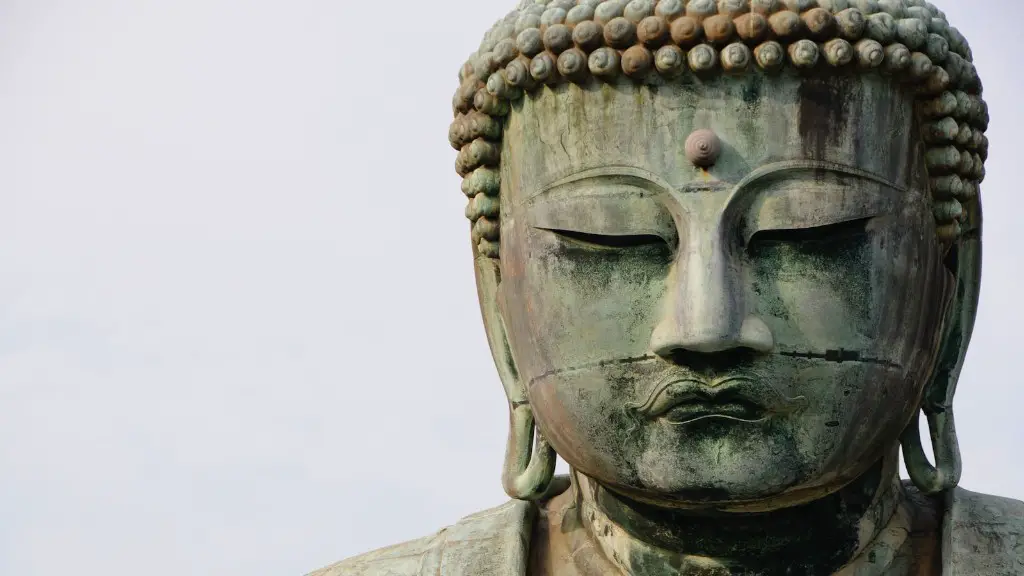Buddhism and Christianity are both major religions with a long history and billions of followers worldwide. While there are many similarities between the two faiths, there are also some significant differences.
For Buddhists, the path to salvation lies in achieving nirvana, a state of enlightenment and liberation from the cycle of suffering and rebirth. In contrast, Christians believe that salvation comes through faith in Jesus Christ and his sacrifice on the cross.
Buddhism also differs from Christianity in its understanding of the nature of reality. Buddhists see the world as an illusion, while Christians believe that the material world is real and created by God.
Of course, these are just some of the ways that Buddhism and Christianity differ. But despite their differences, both religions offer a path to spiritual growth and a deep connection with the divine.
Buddhism differs from Christianity in a number of ways. First, Buddhism does not believe in a personal god, while Christianity does. Second, Buddhism emphasizes the Four Noble Truths and the Eightfold Path, while Christianity emphasizes faith in Jesus Christ and salvation through grace. Third, Buddhism teaches that suffering is caused by attachment to things that are impermanent, while Christianity teaches that suffering is caused by sin. Finally, Buddhism teaches that Nirvana is attained by eliminating desire, while Christianity teaches that heaven is attained by following God’s will.
What beliefs do Christianity and Buddhism have in common?
Morality is an important aspect of both Christianity and Buddhism. Both religions emphasize the importance of behaving with decency and respect. This is known as morality. Morality is the proof of any spiritual practice.
Buddhism is a nontheistic religion or philosophy, ie, it does not believe in a supreme creator being aka God. Christianity is a monotheistic religion and believes that Christ Is the Son Of God.
What are the 3 main beliefs of Buddhism
Buddhism is a religion founded by Siddhartha Gautama, known as the Buddha. It is based on his teachings, which emphasize the Four Noble Truths and the Eightfold Path. The main principles of Buddhism are karma, rebirth, and impermanence. Buddhists believe that karma, or the law of cause and effect, determines our destiny. Good deeds lead to good consequences, while bad deeds lead to bad consequences. We are reborn into different forms after death, based on our karma. And, finally, everything is impermanent, including our thoughts, feelings, and bodies.
The central iconic imagery of the two traditions underscore the difference in their belief structure. The peaceful death of Gautama Buddha at an old age is contrasted with the harsh image of the crucifixion of Jesus as a willing sacrifice for the atonement for the sins of humanity.
Do Buddhists believe in heaven?
In Buddhism, there is no concept of punishment or reward and there is no divine being who decides who goes to hell or heaven. There is merely the illusory results of our thought, words and deeds, which we call karma.
Karma is a central concept in Buddhism. It is the law of cause and effect where our actions have consequences, both good and bad. Buddhists believe that our destiny after death is determined by our Karma. The breakthrough of the cycle of death and birth brings Buddhists to nirvana which is the ultimate goal. Christianity also has a similar concept of doing good deeds in the present and staying with God in heaven after death. However, there are some key differences between the two belief systems. Christianity emphasizes faith in God and Jesus Christ, while Buddhism does not require belief in a god. Christianity also teaches that there is a heaven and a hell, while Buddhism teaches that there is only nirvana.
Why do Buddhist don’t believe in god?
Buddhists do not believe in a supreme god or deity. They believe that everyone has the potential to achieve enlightenment, which is a state of inner peace and wisdom. When a person reaches this spiritual echelon, they are said to have experienced nirvana. The founder of Buddhism, Buddha, is considered an extraordinary being, but not a god.
There is no one specific path to enlightenment, but Siddhartha Gautama’s story is a powerful example of the journey one can take. Gautama was born a prince and had every material comfort one could hope for, but he was not content. He left his palace and family in search of a deeper understanding of life and its purpose. After years of study and meditation, Gautama finally achieved enlightenment.
Since Gautama’s time, Buddhists have been striving to reach this same state. Buddhists do not believe in any kind of deity or god, although there are supernatural figures who can help or hinder people on the path towards enlightenment. The goal is to develop a deep understanding of the true nature of reality and to live in accordance with that understanding.
What is the difference between god and Buddhism
Buddhism is a tradition that emphasizes spiritual liberation. It is not a theistic religion, as the Buddha himself rejected the idea of a creator god. Buddhist philosophers have argued that belief in an eternal god is a distraction for humans seeking enlightenment.
Buddhist teachings regarding life and death are based on the belief that consciousness (the spirit) continues after death and may be reborn. Death is thus viewed as an opportunity for liberation from the cycle of life, death and rebirth. In some cases, however, rebirth may occur in a different form, such as an animal or a spirit.
What is the main worship in Buddhism?
Puja is the Devotional worship of the Lord. It is the means by which Buddhists access their emotions, feelings, and true nature. It is the expression of devotion, respect, admiration and love for something.
The Buddha was a spiritual leader and teacher who lived in India during the 6th century BCE. After his death, his followers compiled his teachings into collections called suttas or sutras. These collections, along with the Buddha’s monastic rules and philosophical texts, make up the Buddhist Canon. The Canon has been passed down orally through generations, and continues to be an important source of guidance and inspiration for Buddhists today.
Which religion is closest to science
There is no denying that Buddhism and science share a lot in common. Both emphasize the need for observation and investigation, and both place a high value on reason and logic. In fact, many modern Buddhists see Buddhism as a kind of science, a “science of the mind” or a “scientific religion.”
Of course, there are also some areas where Buddhism and science diverge. For example, Buddhism teaches that there is more to reality than what can be observed with the physical senses. But overall, the compatibility between Buddhism and science makes it an attractive option for many modern, rational people.
Despite popular belief, many Buddhists do participate in the holiday season. Among Asian American Buddhists, three-quarters celebrate Christmas. On Dec 8, some Buddhists also observe Bodhi Day, which marks when the Buddha reached enlightenment. For these Buddhists, the holiday season is about celebrating their faith and spending time with family and friends.
Can a Buddhist drink?
Buddhism teaches that drinking or using other kinds of drugs can cause carelessness and should be avoided. This is because drugs and alcohol can lead to a loss of control and impulsive behaviors that can harm oneself or others. Strong Buddhist beliefs would therefore be expected to have a significant impact on alcohol use, leading to decreased use and abuse.
There is no single answer to this question as it depends on the particular Buddhist tradition or text in question. Some Buddhist schools, sutras and tantras do teach the existence of a permanent, unchanging atman (self, soul), while others reject this premise outright. It is important to carefully examine the specific beliefs of the tradition or text in question in order to determine their stance on this issue.
Final Words
There are a few major ways in which Buddhism differs from Christianity. For one, Buddhism does not believe in a personal God or in any sort of afterlife, while Christianity does. Additionally, Christianity places a strong emphasis on faith, whereas Buddhism relies more on personal spiritual experience and on ethical living. Finally, Buddhism teaches that all beings are capable of achieving Awakening or Nirvana, while Christianity teaches that only humans have an immortal soul destined for heaven or hell.
In conclusion, Buddhism and Christianity are two very different religions. Christianity is based on the belief in one God, whereas Buddhism is based on the Four Noble Truths. Additionally, Christianity teaches that Jesus is the only way to salvation, while Buddhism teaches that there are many paths to salvation.


